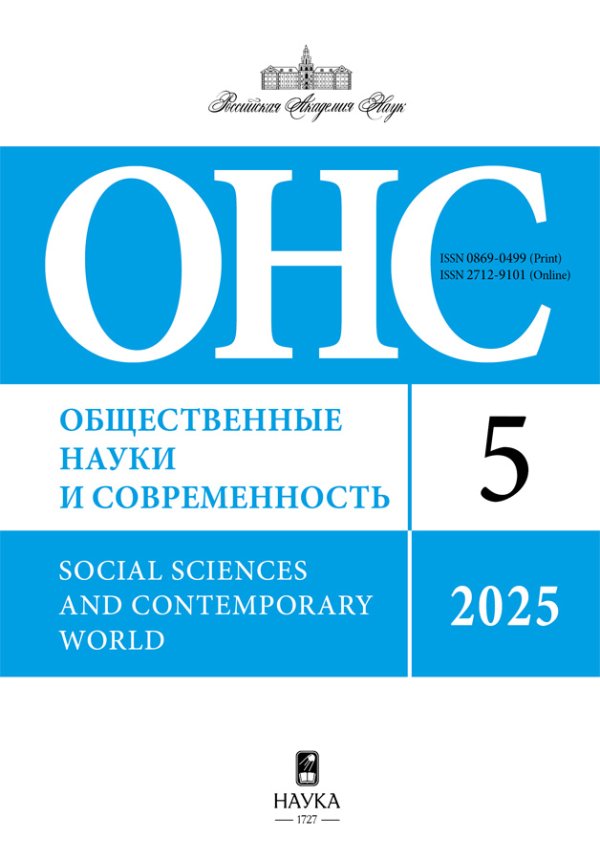Политика мультилатерализма: Египет и ОАЭ в контексте напряженности между Россией и Западом
- Авторы: Ибрагимов И.Э.1
-
Учреждения:
- Национальный исследовательский институт мировой экономики и международных отношений имени Е.М. Примакова Российской академии наук
- Выпуск: № 3 (2025)
- Страницы: 74-87
- Раздел: Африка сегодня
- URL: https://bakhtiniada.ru/0869-0499/article/view/313897
- DOI: https://doi.org/10.31857/S0869049925030061
- EDN: https://elibrary.ru/kaufzn
- ID: 313897
Цитировать
Аннотация
Современный мир переживает значительные трансформации, связанные с реформами старых институтов и созданием новых. Эти изменения сопровождаются вызовами, которые приводят к конфликтам и кризисам, что, в свою очередь, влияет на глобальные процессы и способствует установлению новых норм в международной политике. Рост напряженности между крупными державами, такими как Россия и страны НАТО, представляет серьезную угрозу для глобальной стабильности и безопасности, а региональные конфликты могут изменять параметры и динамику международного взаимодействия. Конфликты выступают катализаторами для переосмысления принципов международных отношений и разработки новых механизмов обеспечения безопасности и стабильности. На этом фоне многие региональные государства ищут новые альянсы и международные площадки для защиты собственных интересов. Политика мультилатерализма или многовекторности приобретает особую значимость для государств, стремящихся сохранить независимость и суверенитет. Рассмотрены политические стратегии Египта и ОАЭ, нацеленные на сохранение и усиление их позиций в условиях роста геополитической и региональной напряженности. Египет и ОАЭ активно участвуют в альтернативных объединениях, таких как БРИКС и ШОС. Многовекторность не только отражает стремление этих стран сохранить экономическую и политическую автономию, но и дает им дополнительный ресурс для посреднической роли в конфликтах. Обе страны, будучи ключевыми игроками на Ближнем Востоке и важными региональными партнерами России, заняли позиции, позволяющие сохранить отношения со всеми ведущими глобальными игроками и предотвратить одностороннее давление со стороны западных партнеров. Эти страны демонстрируют значительный рост сотрудничества с Россией в различных сферах, что подчеркивает их прагматичный подход. Данное исследование демонстрирует актуальность мультилатерализма для современных международных отношений и предлагает анализ стратегий Египта и ОАЭ в контексте меняющегося мира.
Об авторах
И. Э. Ибрагимов
Национальный исследовательский институт мировой экономики и международных отношений имени Е.М. Примакова Российской академии наук
Автор, ответственный за переписку.
Email: ibragim07_93@mail.ru
Москва, Россия
Список литературы
- Мелкумян Е.С. (2022) Космическая деятельность ОАЭ: разрушение стереотипов // Мировая экономика и международные отношения. Т. 66. № 5. С. 78–87. https://doi.org/10.24833/2071-8160-2017-4-55-139-153
- Мелкумян Е.С. (2023) Арабские монархии Залива в XXI веке: региональные и глобальные аспекты внешней политики. М.: Институт востоковедения РАН. 317 с.
- Пархалина Т. (2019) Настоящее и будущее мультилатерализма // Европейская безопасность: события, оценки, прогнозы. № 55 (71). С. 2–7.
- Aiyar M.S., Ilyina A., Lekniute Z., Nguyen L., Raffinot M., Roitman A., Tiffin A., Valderrama L. (2023) Geo-economic Fragmentation and the Future of Multilateralism. Washington: International Monetary Fund.
- Dobrescu M. (2023) Between Strategic Neglect and Geopolitical Realities: Ukraine and North Africa in Light of Russian Aggression. Mediterranean Politics. Pp. 1–11. https://doi.org/10.1080/13629395.2023.2176610
- Elhadidi A. (2018) Egypt’s Shifting Foreign Policy Priorities. The Cairo Review of Global Affairs. No. 29. Pp. 79–87. The Future of Multilateralism: Global Cooperation and International Organizations (2021). Hosli M.O., Garrett T., Niedecken S., Verbeek N. (eds.) Lanham: Rowman & Littlefield.
- Russia in the Middle East (2018). Karasik T., Blank S. (eds.) Washington: The Jamestown Foundation. 448 p.
- Ketbi E.A. (2020) Contemporary Shifts in UAE Foreign Policy: From the Liberation of Kuwait to the Abraham Accords. Israel Journal of Foreign Affairs. Vol. 14. No. 3. Pp. 391–398.
- Lavelle K.C. (2020) The Challenges of Multilateralism. New Haven: Yale University Press.
- Piazza B.A. (2019) The Foreign Policy of Post-Mubarak Egypt and the Strengthening of Relations with Saudi Arabia: Balancing between Economic Vulnerability and Regional and Regime Security. The Journal of North African Studies. Vol. 24. No. 3. Pp. 401–425. https://doi.org/10.1080/13629387.2018.1454650
- Salisbury P. (2020) Risk Perception and Appetite in UAE Foreign and National Security Policy. London: Royal Institute of International Affairs. 41 p.
- Selim G.M. (2020) Egyptian Foreign Policy after the 2011 Revolution: The Dynamics of Continuity and Change. British Journal of Middle Eastern Studies. Vol. 49. No. 1. Pp. 1–22. https://doi.org/10.1080/13530194.2020.1747983
- Shama N. (2020) Egypt’s Middle Power Aspirations under El-Sisi. In: Saouli A. (ed.) Unfulfilled Aspirations: Middle Power Politics in the Middle East. London: Oxford University Press; Hurst & Company. Pp. 91–111.
- Sharp J.M. (2023) Egypt: Background and US Relations. Washington: Congressional Research Service, the Library of Congress. 39 p.
Дополнительные файлы










